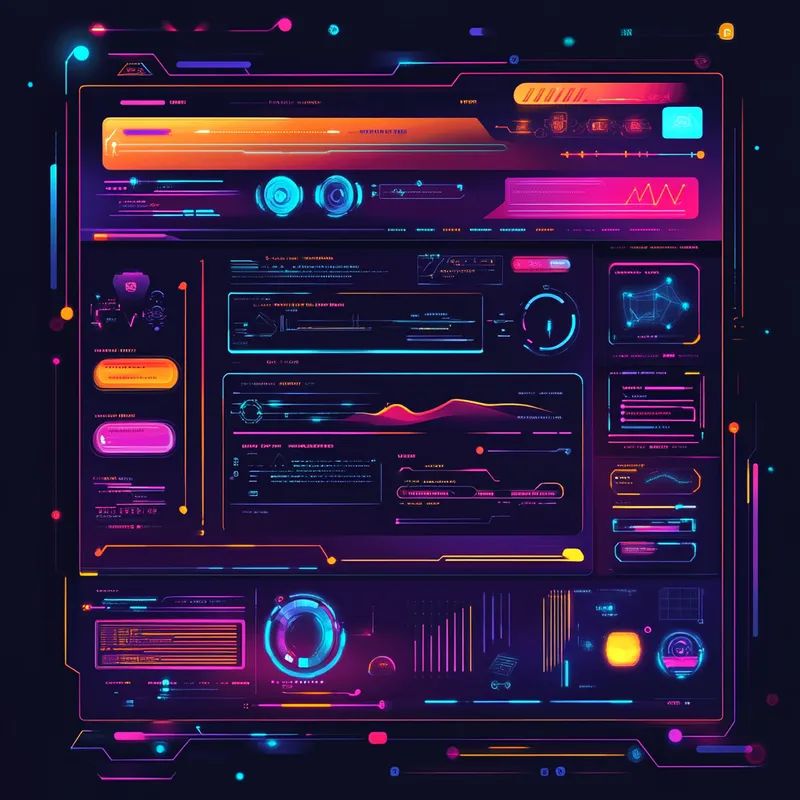AI Overload: Spotify Battles Bots By Purging Thousands of AI-Generated Tracks

Spotify has initiated a significant crackdown on artificial intelligence-generated music, removing tens of thousands of tracks that violated its platform policies. The majority of these songs were produced using Boomy, an AI application capable of generating entire songs through machine learning. This aggressive move by the streaming giant is aimed at eliminating illegitimate streaming activities, as Spotify suspects that bots are being used to artificially inflate stream counts for these AI-generated songs. Furthermore, the company is committed to safeguarding fair royalty payments for genuine artists, a point emphasized in a recent statement to Music Business Worldwide.
Boomy confirmed on May 1 that Spotify had begun targeting their AI-generated songs, specifically those uploaded without proper authorization. The AI program, which has been credited with creating over 14.5 million tracks—representing approximately 13.9% of the world's recorded music—has seen at least six of its songs pulled from two playlists as a direct consequence of Spotify’s enforcement actions. The removal of these tracks followed complaints of fraud and content clutter received by Spotify and other streaming services. Notably, Universal Music Group (UMG), a prominent entity in the music industry, reportedly alerted streaming providers to suspicious streaming patterns associated with Boomy tracks. Spotify acted on these alerts, removing the songs due to suspected artificial streaming generated by bots masquerading as legitimate listeners. The company has also indicated that it is intensifying its efforts to police its platform in response to these ongoing concerns.
In an official statement, Spotify clarified its position: “Artificial streaming is a longstanding, industry-wide issue that we are working to stamp out across our service. When we identify or are alerted to potential cases of stream manipulation, we mitigate their impact by taking action that may include the removal of streaming numbers and the withholding of royalties. This allows us to protect royalty payouts for honest, hardworking artists.” While confirming the removal of “certain catalog releases” from Boomy’s AI-generated songs, Spotify reiterated that “artificial streaming” is a persistent challenge within the music industry that they are determined to end through strong measures designed to protect artists and their rightful earnings.
Despite these actions, there is no evidence suggesting Boomy’s direct involvement in creating fake streams. Boomy has publicly expressed its strong opposition to any form of artificial streaming or manipulation and is actively collaborating with industry partners to resolve the issue and facilitate the restoration of its artists’ content distribution on Spotify. The company affirmed its commitment to ensuring its technology is used ethically and in compliance with industry standards, underscoring its dedication to maintaining the integrity of the music industry and combating potential misuse of its tools.
The rise of AI tools continues to generate widespread discussion across all industries, with various stakeholders expressing both apprehension and excitement regarding its impact. In the broader tech landscape, some founders have called for a moratorium on AI innovations pending adequate regulation. The entertainment sector has already witnessed significant protests, such as those by scriptwriters and movie producers against the use of AI in film production. Now, music industry stakeholders are following suit, with Spotify taking a substantial stand to mitigate AI’s influence. Daniel Ek, Spotify's Group CEO, has publicly acknowledged both the creative potential and the “scary part” of artificial intelligence.
As AI-generated music gains traction, the music industry is proactively implementing measures to safeguard intellectual property rights for artists, labels, and streaming platforms. While AI-generated music is not a new phenomenon, its escalating use and potential ramifications for the industry necessitate a greater focus on preventative actions. Ensuring fair compensation for artists, who depend on their work for livelihoods, means that the integration of AI in music creation must not infringe upon their rights and royalties. Beyond economic concerns, there are valid questions regarding the authenticity of AI-generated music and its potential impact on the artistic process itself. As the industry navigates the rapid growth of AI, striking a careful balance between leveraging the benefits of technology and preserving the integrity of the creative process will be paramount.
You may also like...
Super Eagles Fury! Coach Eric Chelle Slammed Over Shocking $130K Salary Demand!
)
Super Eagles head coach Eric Chelle's demands for a $130,000 monthly salary and extensive benefits have ignited a major ...
Premier League Immortal! James Milner Shatters Appearance Record, Klopp Hails Legend!

Football icon James Milner has surpassed Gareth Barry's Premier League appearance record, making his 654th outing at age...
Starfleet Shockwave: Fans Missed Key Detail in 'Deep Space Nine' Icon's 'Starfleet Academy' Return!

Starfleet Academy's latest episode features the long-awaited return of Jake Sisko, honoring his legendary father, Captai...
Rhaenyra's Destiny: 'House of the Dragon' Hints at Shocking Game of Thrones Finale Twist!

The 'House of the Dragon' Season 3 teaser hints at a dark path for Rhaenyra, suggesting she may descend into madness. He...
Amidah Lateef Unveils Shocking Truth About Nigerian University Hostel Crisis!

Many university students are forced to live off-campus due to limited hostel spaces, facing daily commutes, financial bu...
African Development Soars: Eswatini Hails Ethiopia's Ambitious Mega Projects

The Kingdom of Eswatini has lauded Ethiopia's significant strides in large-scale development projects, particularly high...
West African Tensions Mount: Ghana Drags Togo to Arbitration Over Maritime Borders

Ghana has initiated international arbitration under UNCLOS to settle its long-standing maritime boundary dispute with To...
Indian AI Arena Ignites: Sarvam Unleashes Indus AI Chat App in Fierce Market Battle

Sarvam, an Indian AI startup, has launched its Indus chat app, powered by its 105-billion-parameter large language model...




